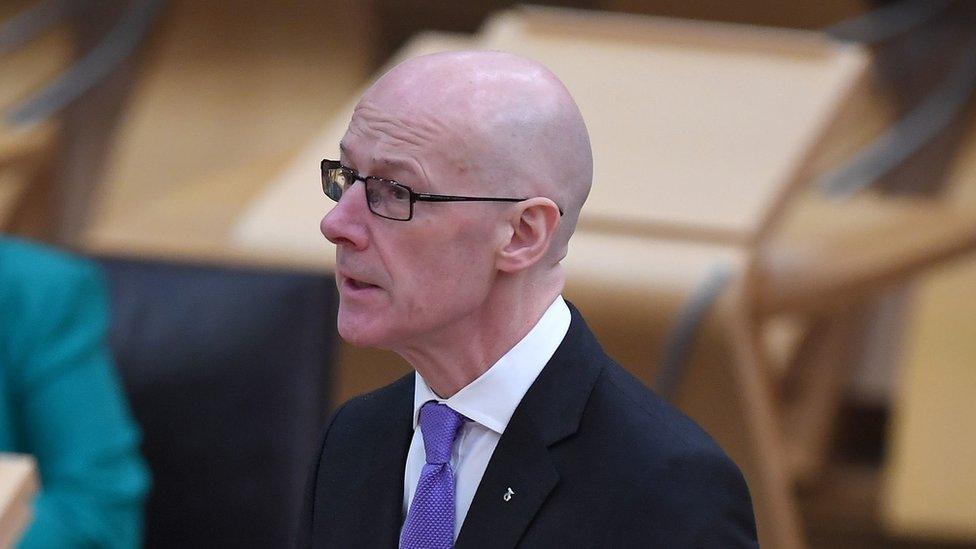What will be the impact of Scottish budget cuts?
- Published
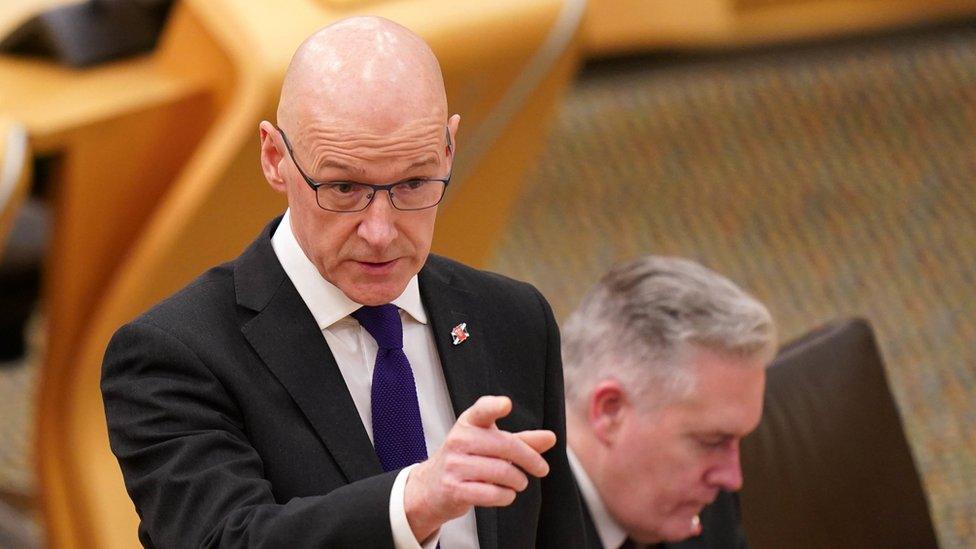
Deputy First Minister John Swinney has detailed £1.2bn of cuts from the Scottish government's budget for the current year, as inflation continues to wreak havoc on public finances.
What is the money needed for, where is it coming from, and are more cuts on the horizon?

Why are these cuts happening?
The emergency budget review started out as an exercise to find extra cash for cost of living measures, to help households deal with rising prices and bills.
But even as it was being considered, the government's own budget was hit by a tidal wave of inflation which wiped £1.7bn of spending power off the plans out less than a year ago.
It also meant public sector workers understandably clamoured for better pay deals, which have cost far more than originally budgeted - some £700m has been put aside, and negotiations with many unions are ongoing amid talk of strikes.
In a way pay deals are the ultimate cost of living measure, as they put money directly into the pockets of workers - but they still need to be paid for from a pot of cash that also covers frontline services.
And this is all just the 2022-23 budget we're talking about - the Scottish government has to balance its books on an annual basis, and can't just carry over some debts into the next financial year. So some cuts have had to be made straight away.
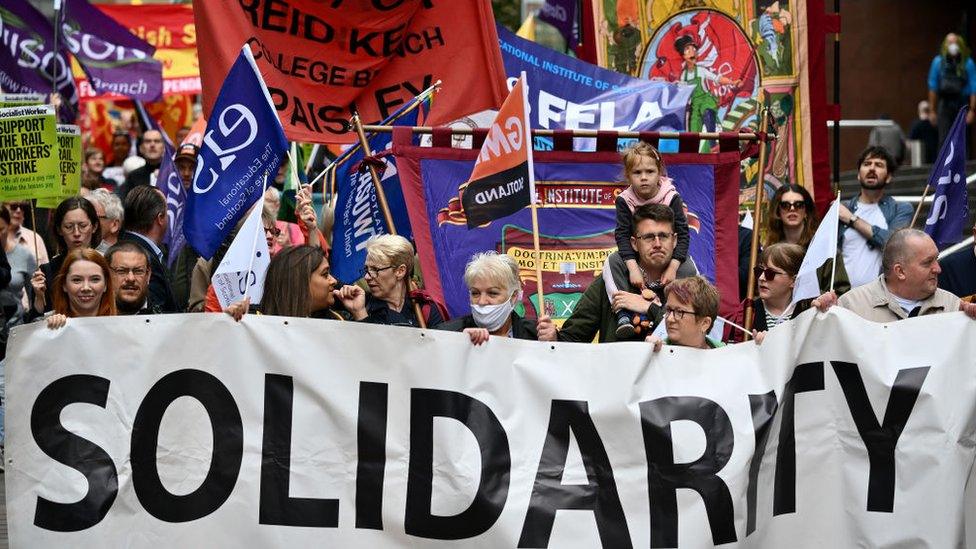
Where is the money coming from?
There is an extent to which money can be found by shifting things around within the budget.
An example is that fewer people than expected signed up for the concessionary travel scheme - there is less demand, and thus less money needs to be spent. Mr Swinney was able to claw back £37.6m from the budget, and unless there's an unexpected spike in applications for bus passes, the public won't notice any difference.
There are lots of examples of this, and of costs that can safely be booted into future years, such as money that hasn't yet been spent on delayed college-building schemes that can be dealt with later, or spending on City Deal projects that has moved further down the road.
This is how the government's budget differs from a household one, for all that they're both being hit by inflationary pressures. Households can't reprofile funds from capital budgets into revenue ones.
But there are only so many of these fiscal conjuring tricks that can be played and there's only so much fat you can trim before you start cutting into the bone.
So some of the cutbacks announced this week are coming from real, tangible areas. Efforts are being made to protect the most critical frontline services, but ultimately people are eventually going to start noticing changes on the ground.
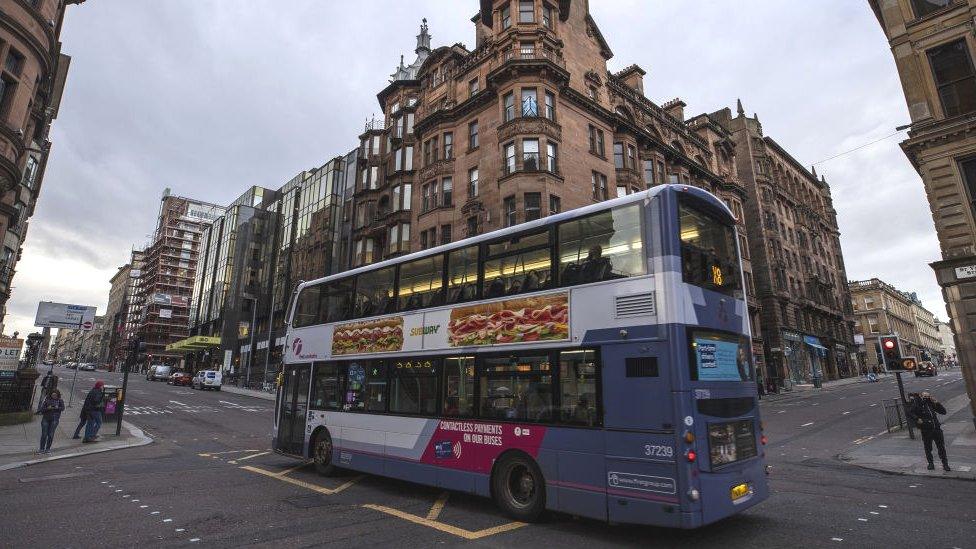
How will these cuts impact services?
One way of selling cuts is to make them to budgets that were already increasing - like that for mental health - so you can contend that they are just not rising as quickly as planned, rather than falling outright.
It might make £65m cuts to primary care improvement funds sound more palatable when it can be badged as a "reduction in the planned growth rate".
But at the end of the day it is still less money for a core portfolio, and at a stage in the year when managers will have made plans for the bulk of their allocated budget.
What isn't known yet is how this will actually translate into reduced services on the ground.
When £116m comes out of the budget for Covid vaccinations, PPE and contact tracing, what does that actually mean at your local vaccine centre?
Are queues for jabs going to get longer? Will there be less face masks and gloves to go around? Or is there an extent to which money can be found down the back of a metaphorical sofa in a mothballed testing lab?
It's not clear from the documents published by the government, and it probably won't be clear to frontline staff on the ground yet either.
The same goes for mental health and primary care - the detail of where precisely the cash will come from may not have translated all the way through to local clinics yet.

How do UK budgets play into this?
The recent fiscal flip-flopping at Westminster has certainly caused uncertainty when it comes to drawing up plans at Holyrood.
At the height of mini-budget mania, it looked as if the Scottish Parliament's block grant might actually grow by £660m over three years, on account of the huge giveaways planned by Kwasi Kwarteng.
After the pendulum swung the other way under Jeremy Hunt, ministers are now expecting a £230m reduction in funding over that same period.
The effect for 2022-23 is actually still a £35m increase in the devolved budget, thanks to changes to stamp duty down south.
But nobody is expecting the longer-term figures to stand still, with Mr Hunt warning of difficult choices to come in his Autumn Statement on 17 November.
The decisions the Chancellor makes will have a direct impact on Holyrood's block grant, both in terms of tax levels and spending limits for departments. The forecasts produced by the Office for Budget Responsibility will also be key.
All of that will play into Mr Swinney's own budget announcement on 15 December, when he will be able to make tax changes of his own.
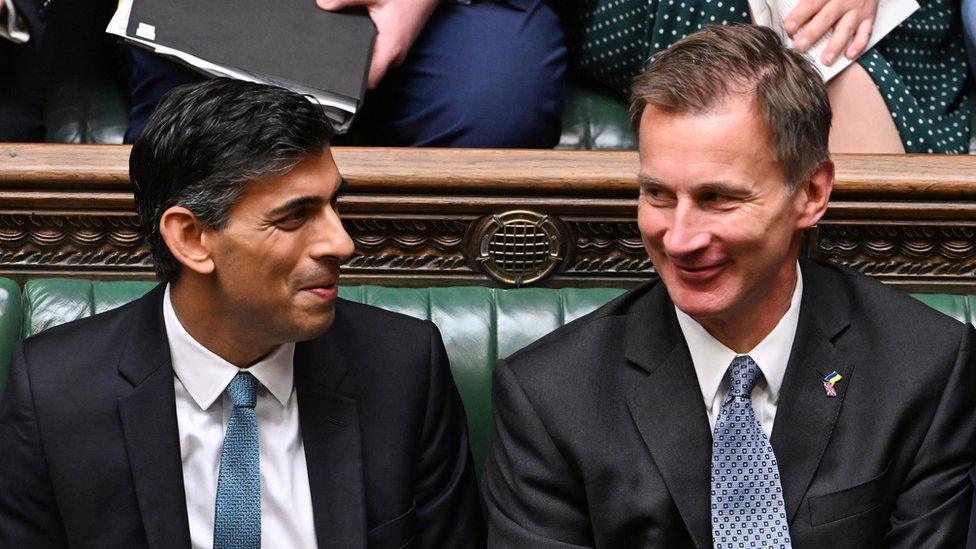
Are more cuts inevitable?
We seem to have moved with dizzying speed from talk of tax cuts boosting growth to tax rises and service cuts being priced in.
There is a measure of political choice in this, of course - there are tax levers ministers have so far declined to pull, like the idea of a beefed-up windfall tax.
Income tax rises are broadly expected, but big hikes are not palatable to a Conservative government - particularly one led by a man who was dreaming of a 16% basic rate in the summer.
The Scottish government too has talked about protecting those at the lower end of the income scale, at the same time as their advisors have warned against making big changes to the higher rates.
Departments in Scotland were already braced for real-terms cuts in any case, having been given a fairly grim outlook by Kate Forbes in her Resource Spending Review in May.
The finance secretary - currently on maternity leave - was issuing warnings about the need to reset the public sector before inflation had blown a hole in the budget.
The figures she set out are what have led to talk around Holyrood of the police service being "hollowed out", of courthouses having to close and the 101 phone line being cut off.
Mr Swinney now says the outlook is "clearly even more difficult" than when Ms Forbes drew up those plans, adding that "measures for efficiency and reform in the delivery of our public services will be even more important".
Whichever way you turn, politicians of all stripes seem to be suggesting that the worst is yet to come.
Related topics
- Published3 November 2022

- Published2 November 2022
